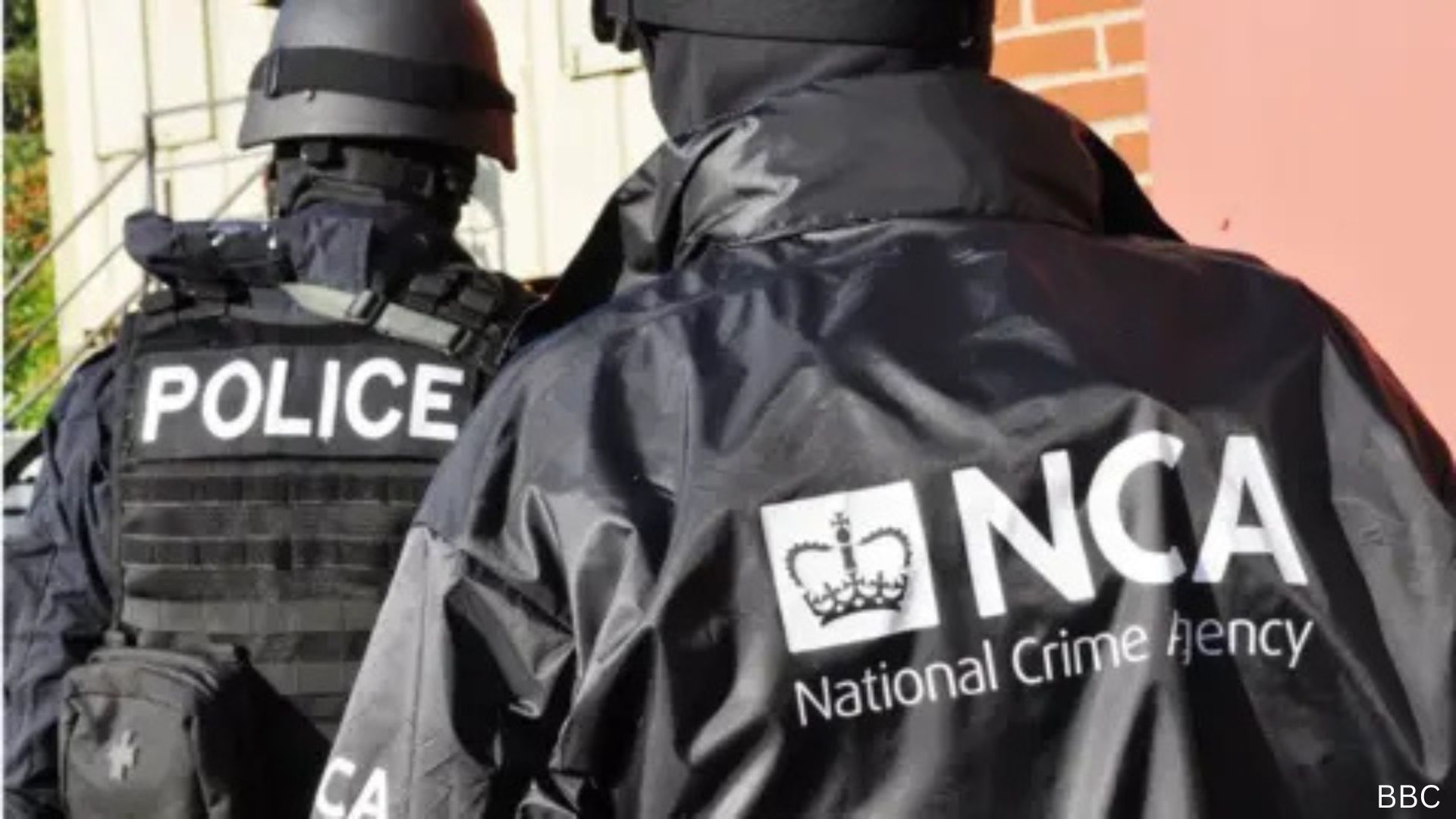In a significant development in the fight against organised crime, two men have been arrested in Northern Ireland as part of a National Crime Agency (NCA) investigation into large-scale money laundering. The operation, carried out in collaboration with the Police Service of Northern Ireland (PSNI) and HM Revenue and Customs (HMRC), targeted a suspected network involved in moving millions of pounds of criminal proceeds through local money service businesses.
The arrests took place in Newry, County Down, following a series of coordinated searches of business and residential premises. The NCA confirmed that officers seized large amounts of cash, both in pounds and euros, along with various electronic devices believed to contain financial records and communications related to the laundering operation. Initial estimates place the value of the seized cash at more than £2.5 million, comprising both sterling and euro denominations.
A 26-year-old man from Newry was arrested at one of the premises on suspicion of money laundering offences. Investigators believe he used his business as a front to launder criminal proceeds generated from organised crime activities, possibly including drug trafficking, tax evasion, and fraud. A second individual, a 51-year-old man, was also detained at the scene and questioned in connection with the operation. Both men were taken into custody for further interrogation, while additional searches were conducted at linked addresses in the area.
The money seized included approximately £882,000 in sterling and over €1 million in cash found during the latest round of searches. Investigators also recovered detailed transaction records, high-value financial ledgers, and a number of encrypted electronic devices that will now undergo forensic examination. Authorities believe these materials could reveal further evidence of a complex laundering network operating between Northern Ireland and international partners.
This latest action forms part of a broader investigation into criminal finances and illicit money movement across the UK. The NCA, working closely with PSNI’s Organised Crime Branch, has been pursuing multiple cases involving the laundering of funds through legitimate-looking businesses, particularly money service firms, convenience stores, and courier networks. By blending criminal proceeds with legitimate income, organised groups can obscure the origin of their funds, making them harder to trace through conventional financial monitoring systems.
Philip Marshall, the NCA’s Regional Head of Investigations for Northern Ireland, described the arrests as a significant step in disrupting the infrastructure that enables organised crime. He highlighted the fact that money laundering serves as a vital support mechanism for criminal operations, allowing offenders to conceal profits from activities such as drug trafficking, human smuggling, and large-scale fraud. Marshall reaffirmed the agency’s commitment to making the UK and Northern Ireland a “hostile environment for criminal finance.”
The PSNI also praised the operation, noting that partnerships between local and national agencies are key to tackling serious financial crime. Officers emphasised that laundering networks often underpin other forms of organised criminality, and dismantling them has a direct effect on reducing harm within communities. They also warned that money laundering is not confined to major cities; rural and small-town businesses can unwittingly become channels for illicit transactions when used by criminals seeking to avoid detection.
Investigators are now focusing on tracing the full scope of the network’s financial activities. Forensic accountants will examine digital and paper records to identify any offshore accounts, associated entities, and further individuals connected to the operation. It is expected that some of the seized assets will be subject to confiscation proceedings under the Proceeds of Crime Act, with the aim of permanently removing criminal wealth from circulation.
This investigation underscores the growing sophistication of financial crime in Northern Ireland. Criminal groups are increasingly relying on complex money laundering schemes to legitimize their gains, often using layers of transactions through money service bureaus, cryptocurrency exchanges, and informal remittance systems. Law enforcement agencies have been ramping up their intelligence-sharing and financial monitoring capabilities to detect suspicious movements earlier and build stronger evidential cases.
The arrests also highlight the crucial role of public vigilance. The NCA has repeatedly urged business owners, accountants, and financial service providers to report suspicious activity, such as unusually large cash transactions, customers avoiding proper documentation, or patterns inconsistent with legitimate trade. Increased awareness at the community level can prevent local enterprises from being exploited by criminal networks.
Both suspects have been released on conditional bail pending further enquiries. The NCA and PSNI continue to gather evidence, with additional arrests anticipated as the investigation unfolds. Detectives are also liaising with international partners to trace cross-border movements of cash and identify whether the funds originated from criminal enterprises outside Northern Ireland.
Authorities have reiterated that financial crime not only fuels organised criminality but also undermines the legitimate economy and public trust. The successful seizure of such a large amount of suspected illicit cash represents a significant disruption to criminal enterprises attempting to profit from unlawful activity.
The NCA’s investigation remains ongoing, but officials have described the operation as a strong example of joint agency cooperation in protecting communities and upholding financial integrity. By targeting the financial infrastructure behind organised crime, law enforcement aims to dismantle the economic base that sustains illegal networks, ensuring that crime does not pay.
%20(4).png)




.jpg)
.png)
.png)
.png)
